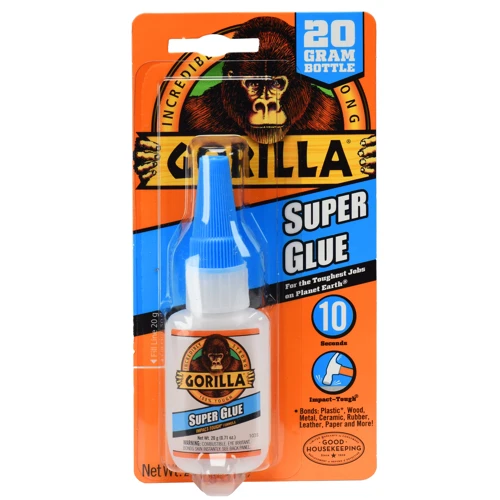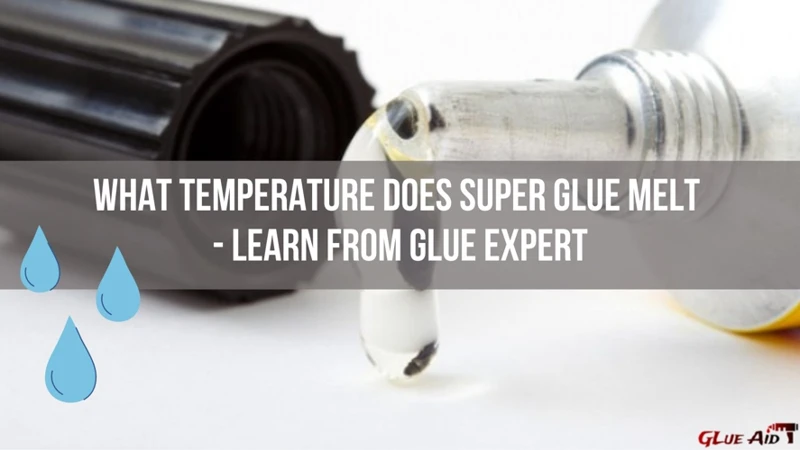When it comes to quick fixes, super glue is a household staple known for its strong bonding capabilities. However, concerns about super glue toxicity arise when this powerful adhesive is mishandled, especially when subjected to heat. The question of whether is super glue toxic when heated is crucial for both DIY enthusiasts and professionals who seek to maintain a safe working environment.
Understanding Super Glue Chemical Composition
Components of Super Glue
At the core of super glue’s powerful adhesive properties lies a group of compounds known as cyanoacrylates. These are fast-acting adhesives that create strong bonds almost instantly upon exposure to moisture. The composition of super glue is tailored for its quick-setting nature, which makes it a versatile tool in various applications, from simple home repairs to intricate crafting tasks.
Super Glue Chemical Reaction Explained
The super glue chemical reaction is fascinating. When the adhesive comes into contact with even the slightest amount of water, a process called anionic polymerization begins. This reaction transforms the liquid cyanoacrylate monomers into a solid polymer chain, resulting in a bond that is remarkably resilient. This transformation is why super glue is so effective for fast repairs but also why its interaction with heat raises safety concerns.
Is Super Glue Toxic When Heated?
Heated Super Glue Dangers
The heated super glue dangers are not to be underestimated. Applying heat to super glue can lead to the decomposition of its cyanoacrylate components, potentially releasing harmful vapors. The fumes can be quite noxious and may irritate the eyes, skin, and respiratory system. It is important to be aware of these risks to avoid any harmful exposure.
Super Glue Heating Risks
Super glue heating risks escalate with increased temperature. At high temperatures, the chemical stability of super glue is compromised, leading to the emission of cyanoacrylate fumes. These fumes are not only unpleasant but can also pose health risks, which is why proper ventilation and protective gear are recommended when working with super glue in heated conditions.
Health Implications of Super Glue Fumes
Inhaling Super Glue Fumes
- Irritation to the eyes, nose, and throat
- Potential respiratory difficulties
- Headaches and dizziness in poorly ventilated spaces
The act of inhaling super glue fumes can lead to immediate discomfort and potential long-term health issues. These fumes are particularly hazardous in enclosed spaces where ventilation is inadequate, emphasizing the importance of taking precautionary measures when using super glue.
Effects of Heating Super Glue on Health
The effects of heating super glue on human health can vary based on exposure levels and individual sensitivities. Prolonged or high-level exposure to the fumes produced by heating cyanoacrylate can exacerbate the severity of symptoms and may lead to more serious respiratory problems. Awareness and education are key in mitigating these health risks.
Super Glue Safety Measures
Preventing Exposure to Adhesive Toxic Fumes
Preventing exposure to adhesive toxic fumes is essential for super glue safety. This can be achieved by working in well-ventilated areas, using protective equipment such as masks and gloves, and adhering to the recommended application methods. Understanding the proper use of super glue can significantly reduce the risks associated with its fumes.
Best Practices for Handling Super Glue
Minimizing the risks associated with super glue involves more than just ventilation. Here are some best practices to ensure safety:
- Read and follow the manufacturer’s instructions carefully.
- Store super glue in a cool, dry place away from heat sources.
- Apply super glue in thin layers to minimize fume release.
- Dispose of any unused glue and containers safely.
When working on various projects, you might have wondered about the safety of adhesives like super glue, especially when exposed to heat. We have informative articles that delve into these concerns. For a comprehensive understanding, you can read about whether super glue is toxic when dry, and we also explore the related topic of hot glue’s toxicity when dry. Additionally, if you’re specifically interested in the broader aspects of super glue’s safety, our article on how toxic super glue is can provide further insights. These resources will help you use these common adhesives safely in your next project.
Conclusion: Prioritizing Safety with Super Glue
In conclusion, while super glue is an incredibly useful adhesive, it is important to treat it with respect due to the potential health risks it presents, especially when heated. By staying informed about super glue toxicity and adhering to safety protocols, we can continue to harness the benefits of this powerful bonding agent without compromising our well-being.


